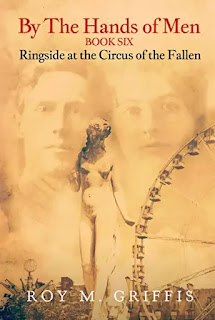"Dodds’ writing is exceptional: he draws in his reader gently, almost subtly, and I found myself reading on long after I should have put the book down each evening."
Amazon UK
Amazon US
Amazon CA
Biographical Fiction
15th century
In the year 1490, Brother Jacomo of Seville is sent to Brabant as a Papal Inquisitor. He loses no time in condemning a man to be burned alive in the main square of Den Bosch. It is a public warning: be sure your sins will find you out. But who is without sin in Den Bosch? Not the local abbess, nor the local artist, Jerome (known to us as Hieronymus Bosch), nor his wife and best friend, who share a mortal sin, nor his serving maid. Nor, as it turns out, the Inquisitor himself, who takes far too much pleasure in devising hideous torture devices, which he insists the local blacksmith makes against his will.
Writing in the present tense, Robert Dodds has taken the creation of a triptych depicting Man’s Fall from Grace for his canvas and created in turn a compelling read. Each character is real, each has his or her good points and weaknesses. Even the foul-minded Inquisitor has a backstory to suggest how and why he has become the man to disrupt and ruin forever the convivial peace of a provincial town.
The setting is Hieronymus Bosch’s home town, but it could be any small town in Northern Europe, for this is the late 15th century when ordinary folk believe utterly in heaven and hell, and that they must do all they can to lighten their burden for the Day of Judgement. The story opens and unfolds in a quiet fashion befitting the location, yet it is a page-turner, and by no means predictable. The artist’s wife and friend and servant share a not uncommon secret, but even that does not play out as one might expect.
Dodds’ writing is exceptional: he draws in his reader gently, almost subtly, and I found myself reading on long after I should have put the book down each evening.
The Garden of Earthly Delights is skilfully crafted, well-written, informative and enjoyable: it is in every way a Discovered Diamond.
© J.G. Harlond
click here to return to home page 'Bookshelf' then scroll down for more items of interest

































